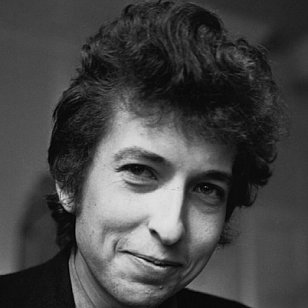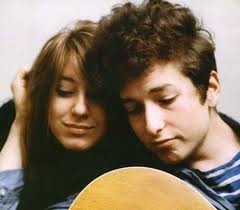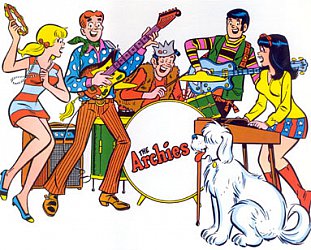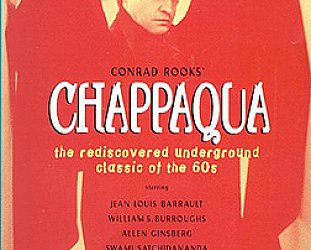Graham Reid | | 1 min read

With a few exceptions (the song about John Lennon's murder on his new album Tempest), Bob Dylan's songs have long since ceased to be about anyone in particular.
And there's a case to be made that perhaps many of those in the mid Sixties which appeared to have been aimed in particular directions (girlfriends Joan Baez, Edie Sedgwick and Suze Rotolo, running mate and fellow bear-baiter Bob Neuwirth) might not have been so target-specific either.
But there's no doubt this nasty eight minute song -- not quite up/down there with Positively 4th Street but not far behind -- was aimed one person in particular: his then-girlfriend Suze Rotolo's sister Carla.
 When Dylan and Suze broke up -- and there seems to have been at least one vicious shouting match with Carla and the girls' mother -- Dylan reserved particular venom for Carla and unleashed it in this song.
When Dylan and Suze broke up -- and there seems to have been at least one vicious shouting match with Carla and the girls' mother -- Dylan reserved particular venom for Carla and unleashed it in this song.
As she later noted, it was "just devestating" when she heard it, "the way he could twist somebody's words back on themselves and make them feel he was right and they were wrong".
And while certain people could run for cover when some of Dylan's other songs around this time seemed ambiguous, so they could deny and deflect, poor Carla had no place to hide.
"Of the two sister, I loved the young," he wrote before idealising Suze. "With sensitive instincts, she was the creative one. The constant scapegoat, she was easily undone by the jealousy of others around her. For her parasite sister, I had no respect. Bound by her boredom, her pride to protect, countless visions of the other she'd reflect as a crutch for her scenes and her society."
It didn't get any more kind either.
Later Dylan said it was a song that he regretted in retospect: "I must have been a real schmuck to write that. I look back at that particular one and say, of all the songs I've written, maybe I could have left that alone."
After this, Like a Rolling Stone and Positively 4th Street, there must have been any number of people glad he got out of the game of shaming and started singing about "20 pounds of headlights stapled to his chest".
This was on his 1964 album Another Side of Bob Dylan . . . and it certainly was.
For more oddities, one-offs or songs with an interesting backstory use the RSS feed for daily updates, and check the massive back-catalogue at From the Vaults.





geoff - Sep 7, 2012
headlines ?? GRAHAM REPLIES: Ha! Of course it should be "headlines". I daren't even attempt a Keith Richard lyric!
SaveJackie Hayden - Sep 7, 2012
The article says that Dylan's songs "have long since ceased to be about anyone in particular." This is not all that remarkable, as the same could be said of songs in general. GRAHAM REPLIES: I think you miss the point slightly, in the Sixties and Seventies many Dylan songs were about particular people be they Woody Guthrie, the boxers Davy Moore or Rueben Carter (in the Sixties and Seventies respectively), victims of racism, friends, lovers, his wife Sara, gangster Joey Gallo, Billy the Kid etc. The last decade and more has seen very little of that kind of specificity. That was my point, and why I posted this nasty piece of work.
SaveMusic of Bob Dylan - Aug 13, 2020
We are actively promoting a link to this interesting topic on The Bob Dylan Project at:
Savehttps://thebobdylanproject.com/Song/id/46/Ballad-in-Plain-D
If you are interested, we are a portal to all the great information related to this topic.
Join us inside Bob Dylan Music Box.
post a comment